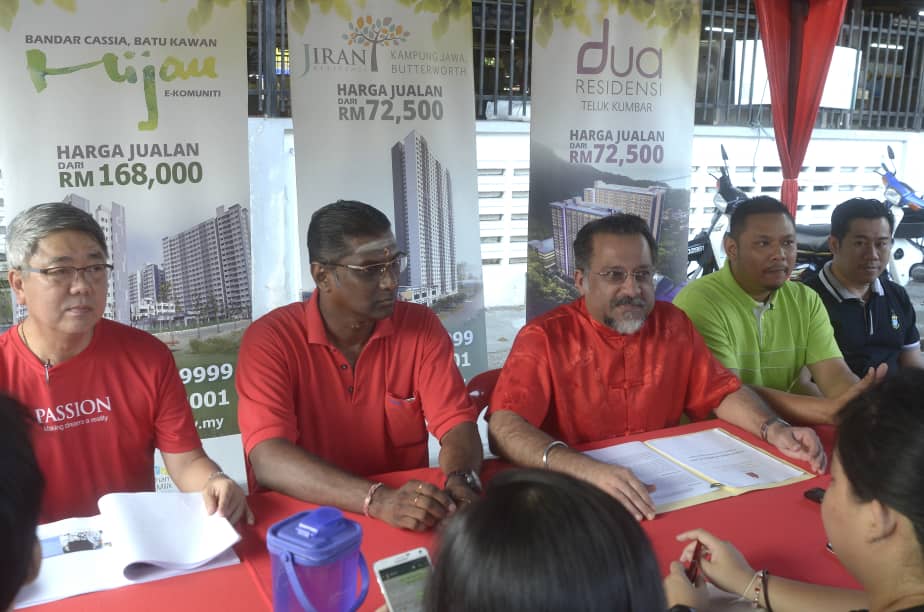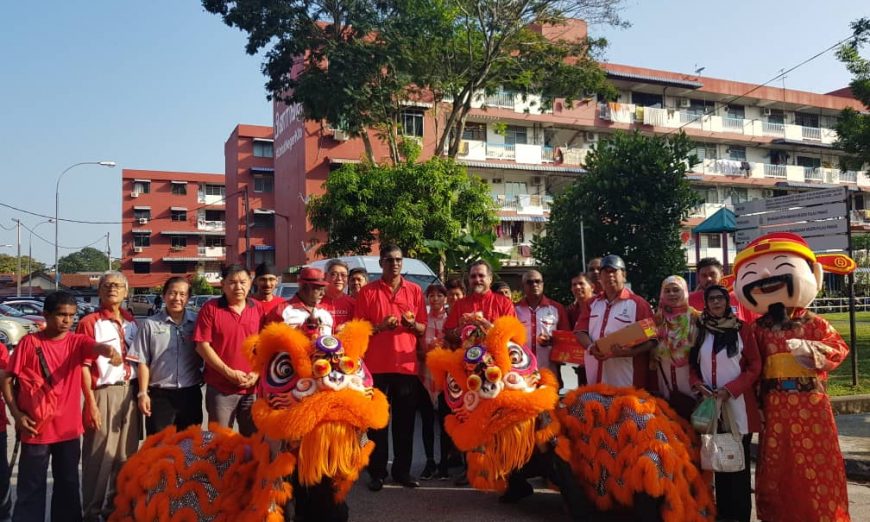THE Penang government is bent on urban regeneration for old public housing schemes due to the scarcity of land in the state.
Penang Housing, Town, Country Planning and Local Government Committee chairman Jagdeep Singh Deo told a press conference at the Taman Free School hawker centre today that they have identified Taman Mahsuri, Taman Free School Flats and Rifle Range Flats on the island and Taman Siakap Flats and Mak Mandin Flats on the mainland to undergo the urban renewal projects.
He said they plan to rejuvenate Taman Mahsuri in Bayan Baru first by demolishing the five blocks consisting of about 800 units and rebuilding them as they want to begin with a small project. There are a few legal issues for them to iron out, though.
“As you know, there is land scarcity on Penang island. If an old housing scheme has now 3,000 residents, we can accommodate 6,000 under the regeneration scheme. We need to prepare for the future population of Penang. We’ve reached the capacity in the town areas,” said Jagdeep.
“These old public housing schemes that are beyond 40 to 50 years old are more expensive to maintain than to build a new one from scratch.”

Also present were Jelutong MP R.S.N. Rayer, M Summit Group founder and managing director Datuk Albert Moh, state Housing Department assistant senior secretary Mohd Fauzy Mohd Yusoff and several residents from Taman Free School.
Jagdeep said the urban regeneration scheme would benefit about the 4,000 residents of the Taman Free School Flats comprising 1,100 units.
“They are now occupying about 300 to 500sq ft unit but under the regeneration project, each owner will be compensated a unit not less than 750sq ft. On top of that, every owner will be given a car park each besides being provided better facilities, like a gym and a green park,” he said.
While the residents’ concerns are about density or mega size projects and the maintenance fees, Jagdeep said they would listen to the feedback and come out with a win-win situation.
“We can look at a balanced development or a proper sizing. Demolishing old buildings and rebuilding them would take a shorter span of time than doing land reclamation.”
Jagdeep said there is, however, a snag as the law is very unclear over the implementation of regeneration scheme.
“If one out of 3,000 residents objects (to be moved), work may not be allowed to proceed at all. In Singapore, if 80% of the residents agree (to a rejuvenation project), the authorities can acquire the property for work to begin.”
Jagdeep, who had brought up this issue with Housing and Local Government Minister Datuk Zuraida Kamaruddin, said he would suggest amendments to the Strata Management Act and National Land Code when he meets Deputy Prime Minister Datuk Seri Dr Wan Azizah Wan Ismail and Attorney-General’s Chambers representative at a National Council for Local Government meeting next week.
Penang, he said, is very strict on hill development and does not approve projects 76m (250ft) above sea level compared to the national limit of 300m above sea level and also on slopes of more than 25 degrees.
As such, Jagdeep said reclamation of land for any island in the world is a norm. That’s why the state is embarking on reclamation projects like the Penang South Reclamation, Tanjung Pinang and Gurney Wharf to have sufficient land bank.

On another matter, Jagdeep said the state would be looking at a request from the Penang Real Estate and Housing Developers’ Association (Redha) to extend the waiver of 3% levy on foreign purchasers till June.
“This development charges have not been static. They have been reviewed many times – a downward review. And many of the conditions imposed on housing, we have loosened. I will consider their request for an extension.
“We understand. When they make this request due to the soft market, we can consider. We’re here to assist accordingly.
“When a developer wants to use my guidelines for 100% affordable housing, he gets many incentives. The first thing is he doesn’t have to build low-cost and low-medium cost. That’s the biggest chunk. When you talk about cross subsidy, it’s always the low-cost and low-medium components that eat into any developer’s numbers.
“But if you want to build million dollars’ houses and you can’t sell them, don’t come and complain to me. Don’t keep asking to review development charges. Don’t put all your apples in one basket … spread them out. Do some affordable houses. The market now is for affordable housing.”
Jagdeep, Rayer and their team members later went over to the Taman Free School market to distribute mandarin oranges to market-goers and traders in conjunction with the Chinese New Year celebration.
Story by K.H. Ong
Pix by Chan Kok Kuan

